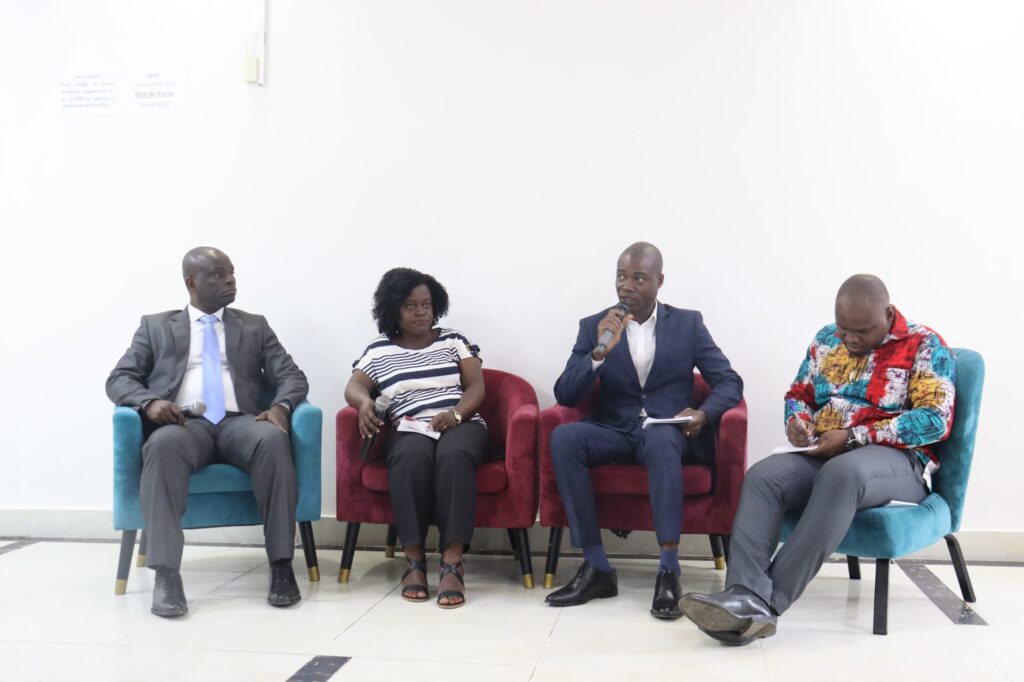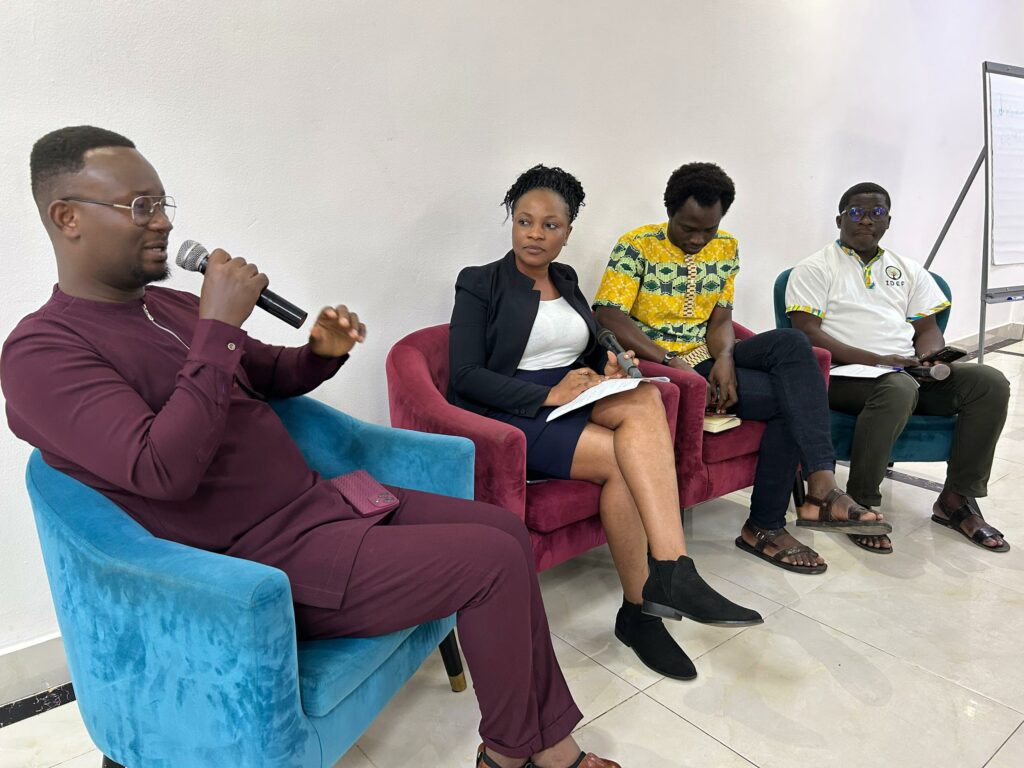Researchers and journalists discuss the use of climate data in Francophone Africa
Researchers from Côte d’Ivoire, journalists from West and Central Africa and other climate advocates met on 13 October, in Abidjan, to discuss a key element in journalistic investigations and climate research: data.
The Abidjan forum brought together actors from these three fields to discuss the best ways of working together to cover climate change in the public interest. This stems from an observed trend of disconnection when it comes to climate change reporting between the players. Scientists often have data that journalists may need for their investigations when it comes to climate change, and NGOs can base their advocacy for the climate on journalists’ investigations.
The one-day forum was divided into two panels and group discussions.

The first panel of journalists and researchers during the forum.
A first panel had Professor François Kouamé, University researcher in climate change and biodiversity from Côte d’Ivoire; Madeleine Ngeunga, datajournalist, and CIJ trainer in climate investigation from Cameroun; Stephane Dea, data expert and representative of one of the oldest scientific research centres in French-speaking Africa, Institut de Recherche pour le Développement (IRD) from Côte d’Ivoire, moderated by Anderson Diédri, environmental journalist and trainer for CIJ, also from the host country. They addressed the importance of data in the fight against climate change. Practical issues such as how journalists can access and exploit researchers’ data were discussed among the panelists and with the audience.
A second panel with Bakary Traore, a data and environmental journalist and Marc Kouadio civil society activist and climate data advocate, both from Côte d’Ivoire; Hector Nammangue, a Togolese journalist and founder of a media outlet specialised in environmental journalism, focused on the role of the media and civil society in the analysis and dissemination of climate scientific data.

Second panel of the forum
Later in the day, the participants discussed three themes in working groups: how to improve the quality and accessibility of climate data in West and Central Africa, strategies to improve the communication of climate data to vulnerable populations and decision-makers, and synergies of action to enhance the impact of climate data on public policy.
A series of recommendations emerged from the discussions, highlighting for instance the importance of creating open data platforms for climate data to facilitate their access and exploitation and strengthening links between researchers and journalists.
This forum was followed by a 4-day story-lab workshop during which trainers from CIJ and CENOZO trained a dozen of journalists on tools and approaches for investigating climate change, as part of the Open Climate Reporting Initiative (OCRI) project.
